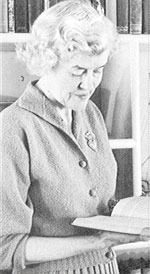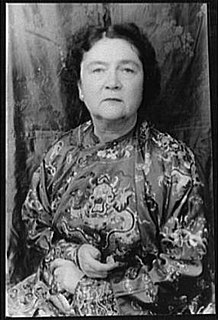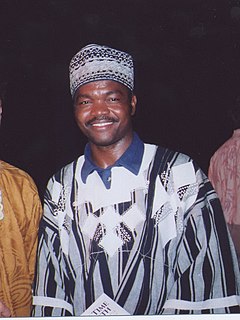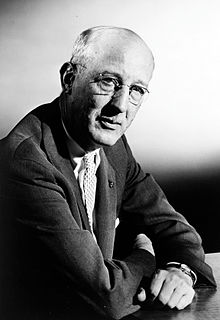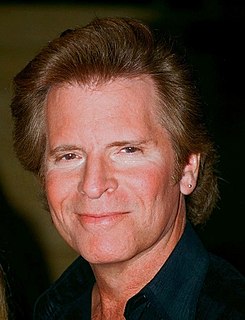A Quote by Margaret Craven
What a shame that Christianity had come here!If the white man had not intruded where he was not wanted, where he did not belong, even now protected by the mountains and the river,the village would have remained a last stronghold of a culture which was almost gone.Mark tried to say that no village,no culture can remain static. I have often thought that if this lively and magnificent land belongs to anyone,it's to the birds and the fish.They were here long before the first Indian and when the last man is gone from the Earth,it will be theirs again.
Quote Topics
Again
Almost
Anyone
Before
Belong
Belongs
Birds
Christianity
Come
Culture
Did
Earth
Even
Even Now
First
Fish
Gone
Had
Indian
Land
Last
Lively
Long
Magnificent
Man
Mark
Mountains
Now
Often
Protected
Remain
Remained
River
Say
Shame
Static
Thought
Tried
Village
Wanted
Were
Which
White
White Man
Will
Would
Related Quotes
The psychological consequences of this spread of white culture have been out of all proportion to the materialistic. This world-wide cultural diffusion has protected us as man had never been protected before from having to take seriously the civilizations of other peoples; it has given to our culture a massive universality that we have long ceased to account for historically, and which we read off rather as necessary and inevitable.
Men had reached into the scrub and along its boundaries, had snatched what they could get and had gone away, uneasy in that vast indifferent peace; for a man was nothing, crawling ant-like among the myrtle bushes under the pines. Now they were gone, it was as though they had never been. The silence of the scrub was primordial. The wood-thrush crying across it might have been the first bird in the world-or the last.
I did not disregard my culture, if I did, it was the white American culture, and I accepted my true culture, when I accepted Mohammed Ali, because this is a black name, Islam is the black man's religion, and so I would like to say, that I would like to clarify that point that I reclaimed my real culture, and that's being a black man and wearing a black name with a black body, and not a white name, so I would never say that I didn't disown my culture.
song of elli (old age) "What is plucked will grow again, What is slain lives on, What is stolen will remain What is gone is gone... What is sea-born dies on land, Soft is trod upon. What is given burns the hand - What is gone is gone... Here is there, and high is low; All may be undone. What is true, no two men know - What is gone is gone... Who has choices need not choose. We must, who have none. We can love but what we lose - What is gone is gone.
Last night I thought about all the kerosene I've used in the past ten years. And I thought about books. And for the first time I realized that a man was behind each one of the books. A man had to think them up. A man had to take a long time to put them down on paper. And I'd never even thought that thought before...It took some man a lifetime maybe to put some of his thoughts down, looking around at the world and life, and then I come along in two minutes and boom! it's all over.
ADAMSBERG WAS NOT A MAN WHO WENT IN FOR EMOTION: he skirted around strong feelings with caution, like swifts who only brush past windows with their wings, never going in, because they know it will be difficult to get out. He had often found dead birds in the village houses back home, imprudent visitors who had ventured inside and never again found their way back to the open air. Adamsberg considered that when it came to love, humans were no wiser than birds.
If you discuss the beliefs of Christianity with the village diviner, the medicine man, he will say the white man must be extremely stupid. The white man must be profoundly troubled - probably torn by a huge guilt connected to how he treated the ancestors - to think that villagers would buy the idea that someone died on the cross for us. They would say these beliefs are evidence that the white people killed someone of great importance, probably a diviner and a healer. If you kill a healer, you must make amends by appeasing the healer's spirit.
The reality is that the founding fathers were land speculators. The fact was that you couldn't vote in this country if you did not own land, and that was basically you had to be a white man who owned land. Now how did they get that land? They basically had to steal it from someone, and that would be probably the Indians. And so most of the initial founding fathers were, while they may have had some really nice ideas about democracy, they had a lot of issues with people of color. They had a lot of issues with people who held things that they coveted.
Birds were flying from continent to continent long before we were. They reached the coldest place on Earth, Antarctica, long before we did. They can survive in the hottest of deserts. Some can remain on the wing for years at a time. They can girdle the globe. Now, we have taken over the earth and the sea and the sky, but with skill and care and knowledge, we can ensure that there is still a place on Earth for birds in all their beauty and variety - if we want to... And surely, we should.
If you had been poor in your last life I would have asked you to be rich when you come again. But you were rich. If you had been a coward, I would have asked you to bring courage. But you were a fearless warrior. If you had died young, I would have asked you to get life. But you lived long. So I shall ask you to come again the way you came before.
